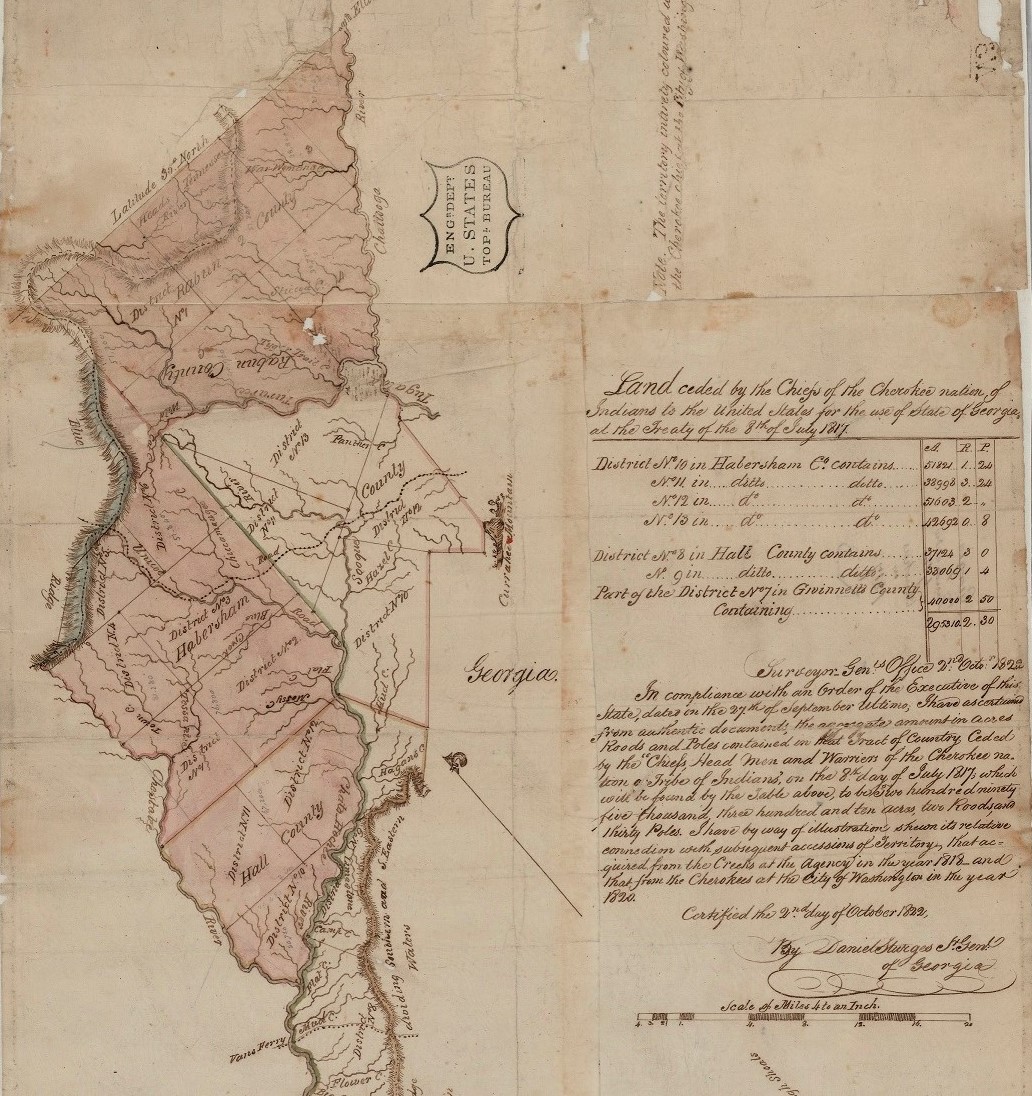

American Indian Treaties |
The National Archives and Records Administration (NARA) houses original treaties made between the United States and American Indian nations. NARA also houses instructions issued to treaty commissioners, minutes of treaty councils, and other records related to American Indian treaties.
Historical Background
From 1774 until about 1832, treaties between individual sovereign American Indian nations and the United States were negotiated to establish borders and prescribe conditions of behavior between the parties.
The form of these agreements was nearly identical to the Treaty of Paris ending the Revolutionary War between the U.S. and Great Britain. The negotiations ended in a mutually signed pact that had to be approved by the U.S. Congress. Non-tribal citizens were required to have a passport to cross sovereign Indian lands.
From 1832 until 1871, American Indian nations were considered to be domestic, dependent tribes. Negotiated treaties between tribes and the U.S. had to be approved by the U.S. Congress.
In 1871, the House of Representatives ceased recognition of individual tribes within the U.S. as independent nations with whom the U.S. could contract by treaty. This ended the nearly 100-year-old practice of treaty-making between the U.S. and American Indian tribes.
The online exhibit "Rights of Native Americans" includes a visual timeline of the history of American Indian treaties and of Native American activism to defend tribal sovereignty.
Additional Resources
-
Published Government Sources Relating to Native Americans provides information about treaties, policies, Congressional hearings and debates, and the implementation of federal law.
-
American Indian Laws and Treaties, maintained by the Archives Library Information Center (ALIC), includes links to other published sources about American Indian treaties and federal law.
-
U.S. Senate records related to American Indian treaties are described in Chapter 21 of the Guide to Records of the United States Senate at the National Archives, 1789–1989, Bicentennial Edition.
PDF files require the free Adobe Reader.
More information on Adobe Acrobat PDF files is available on our Accessibility page.
